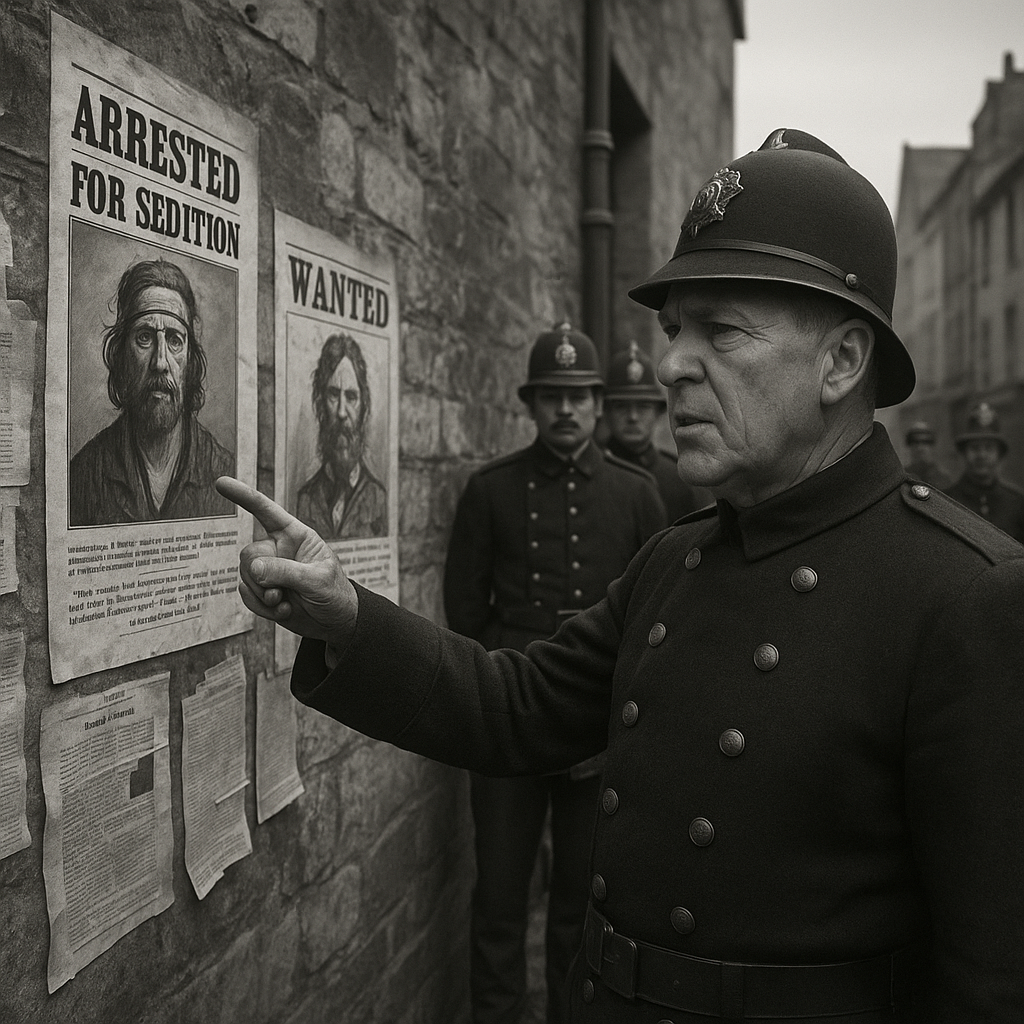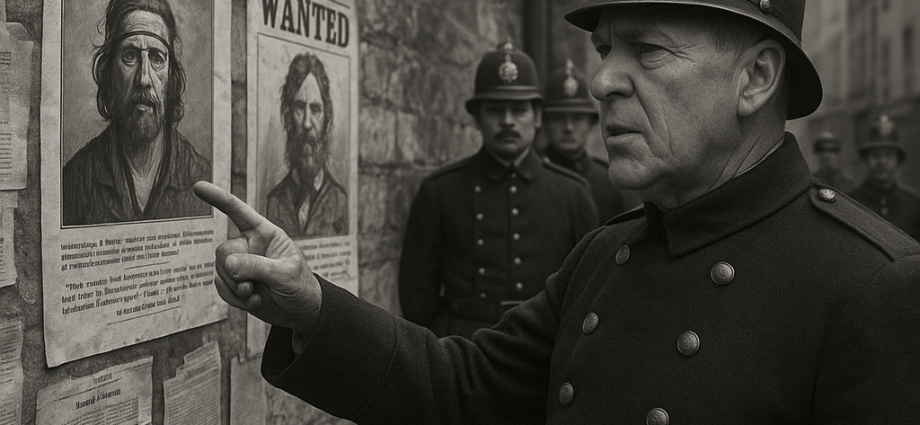By Staff Writer, The Times-Observer
The echoes of the rope that ended Rodger “The Liar” Bianchovi’s life have scarcely faded from the Yard of Justice, yet their reverberation continues across the breadth of the realm. What began as a single man’s deceit has unfurled into a sprawling net of conspiracy, deceit, and foreign intrigue that now touches towns, trade guilds, and even the pressrooms of the capital itself.
 In the seven days since the execution, the Royal Constabulary has carried out no fewer than thirty-two arrests in connection with Bianchovi’s activities and those of the clandestine organization calling itself The Crimson Dawn. What was once whispered rumor now appears an organized machine — a network designed to infiltrate the Kingdom’s information channels and infect them with venomous lies.
In the seven days since the execution, the Royal Constabulary has carried out no fewer than thirty-two arrests in connection with Bianchovi’s activities and those of the clandestine organization calling itself The Crimson Dawn. What was once whispered rumor now appears an organized machine — a network designed to infiltrate the Kingdom’s information channels and infect them with venomous lies.
From Whispers to Warrants
At dawn on Firstday, the Constabulary launched coordinated raids in Inverness, Whitehaven, and Brackley under sealed orders from the Ministry of Justice. Acting on intelligence recovered from Bianchovi’s notebooks and ciphered correspondence, inspectors entered a series of unassuming premises — a spice merchant’s loft, a schoolroom cellar, and an abandoned clockmaker’s shop — discovering in each a cache of pamphlets, falsified ledgers, and fragments of printing equipment.
“These were not the scattered efforts of malcontents,” said Chief Inspector Daven, who has become the public face of the inquiry. “This was industry — industry devoted to deceit.”
In Whitehaven, officers uncovered a hidden press ingeniously disguised as a cargo winch. The contraption was capable of producing up to a thousand leaflets in a night, many bearing the slogan ‘Truth Is the Tyrant’s Enemy.’ In Brackley, an accountant’s journal revealed a series of payments marked only with the initials “R.B.,” believed to stand for “Red Banner.”
The Net Tightens
By Thirdday, the sweep had extended to the outskirts of the capital, where Constables intercepted a coach attempting to cross the East Bridge under cover of fog. Concealed within were several sealed trunks, each filled with bundles of paper bearing the watermark of the defunct Banner press. The driver, when questioned, confessed that his instructions came from “friends of the cause” operating from beyond the northern border.
The Ministry of Foreign Affairs has declined to comment on suggestions that agents from Marelia may have funded the network, though officials privately admit that the trail “leads inconveniently near their frontier.”
“We cannot confirm foreign involvement,” said Lord Chancellor Berrow at a press briefing, “but we can confirm betrayal — and that is crime enough.”
Public Reactions
Among the citizenry, the sweeps have been greeted with a mixture of relief and weary disbelief. In the taverns of Inverness, men raise their tankards in toast to the Constabulary, yet speak uneasily of how easily falsehood took root.
“Those papers were everywhere,” said one blacksmith. “You’d find them folded into your bread or slipped under your door. People read them because they looked like news — and people trust what looks official.”
In the marketplace, a woman selling apples recounted that her eldest son had once been drawn to the Red Banner meetings. “He said they spoke for the common man,” she sighed. “Now he says they only spoke for chaos.”
Others warn that the purge may grow too wide. A pamphleteer arrested in the Dock District claimed he had never read The Red Banner at all. “I write about fishing quotas,” he protested as he was led away. The Ministry of Justice responded curtly: “If he is innocent, he will have the chance to say so — under oath.”
Moral Reckoning
The Archbishop of Northmarch addressed the matter in his Midgloam sermon, declaring: “When a people forget that truth is sacred, they invite destruction not by sword or cannon, but by word and whisper. Let this purge not be vengeance, but cleansing.” His words were echoed throughout the parishes of the realm on the following Sabbath.
Meanwhile, in the editorial offices of The Times-Observer, printers and writers alike have rededicated themselves to what the Editor-in-Chief described as “the plain service of verity.” He remarked, “The pen is only noble when it serves the light. When it traffics in shadow, it becomes a dagger.”
What Comes Next
The Constabulary’s current focus lies upon the ringleaders still at large. Warrants have been issued for four individuals identified by initials found in Bianchovi’s private cipher book — “M.D.,” “F.R.,” “E.V.,” and “T.G.” Each is believed to have managed a regional cell responsible for distributing propaganda and collecting donations from sympathizers. Rewards have been posted in every district.
In a move unseen since the border crises of past decades, the Ministry of Information has ordered every provincial governor to issue a weekly bulletin confirming or denying major rumors — a policy designed to “starve the liars of oxygen.” The edict concludes: “Let rumor die of neglect, and truth be the only coin of speech.”
Closing the Circle
As night fell on Sixthday, the bells of the Constabulary tower tolled once for each arrest made since the beginning of the purge. Citizens gathered along Candle Street to listen in silence. When the final chime faded, one old man removed his hat and murmured, “May the next sound be of truth spoken freely.”
For now, the streets are quieter. The presses that once hissed with treachery stand cold. Yet the investigation continues, and Chief Inspector Daven warns the realm not to mistake the silence for peace.
“The serpent may lose its head,” he said grimly, “but the coils still move. And we intend to crush them all.”
